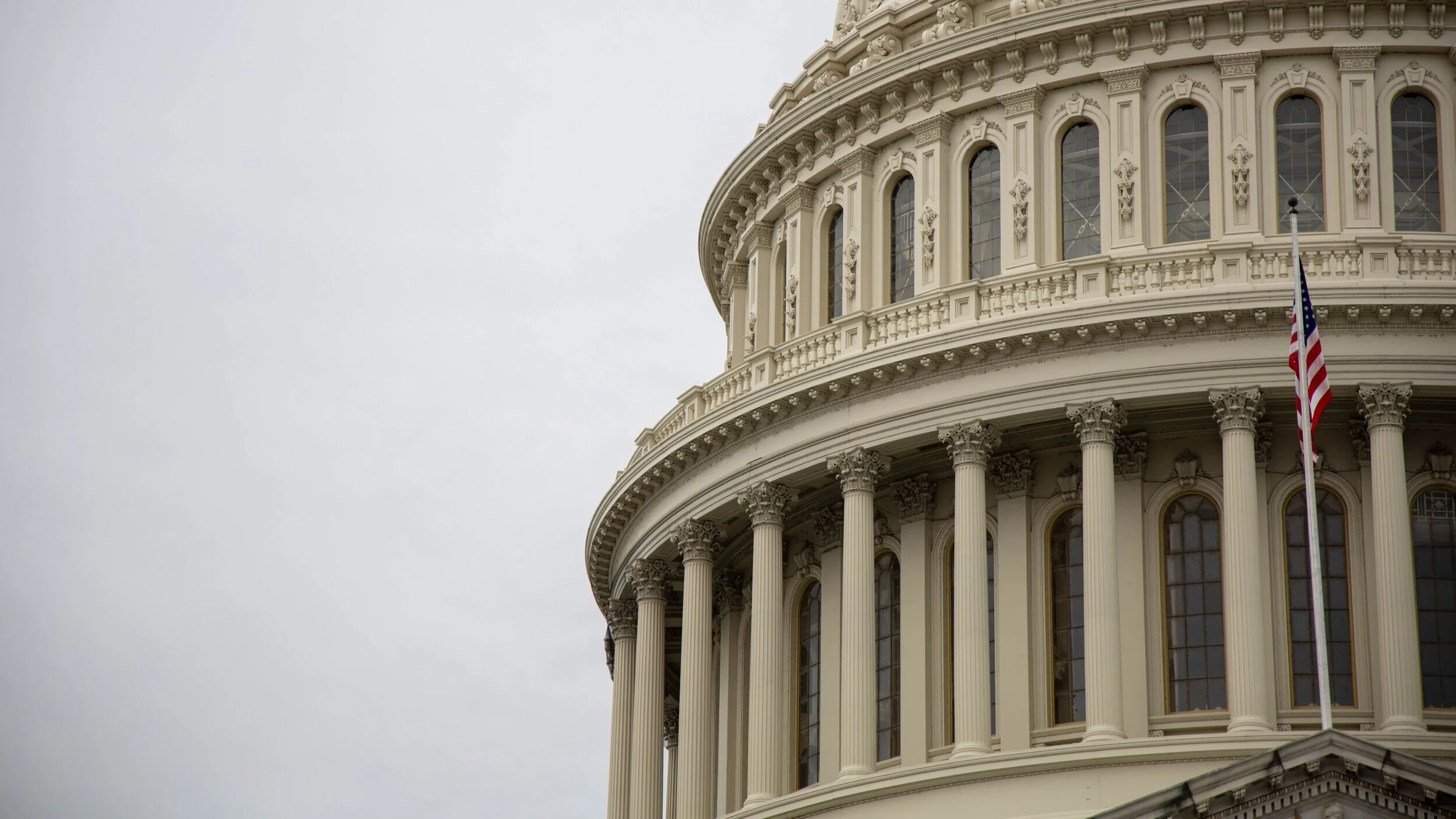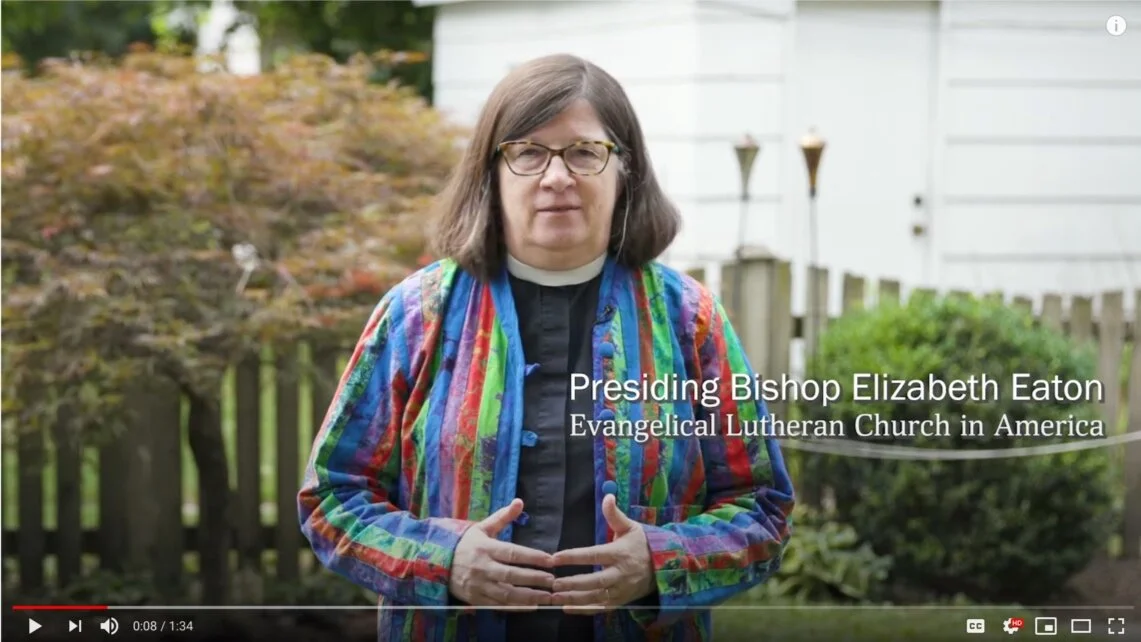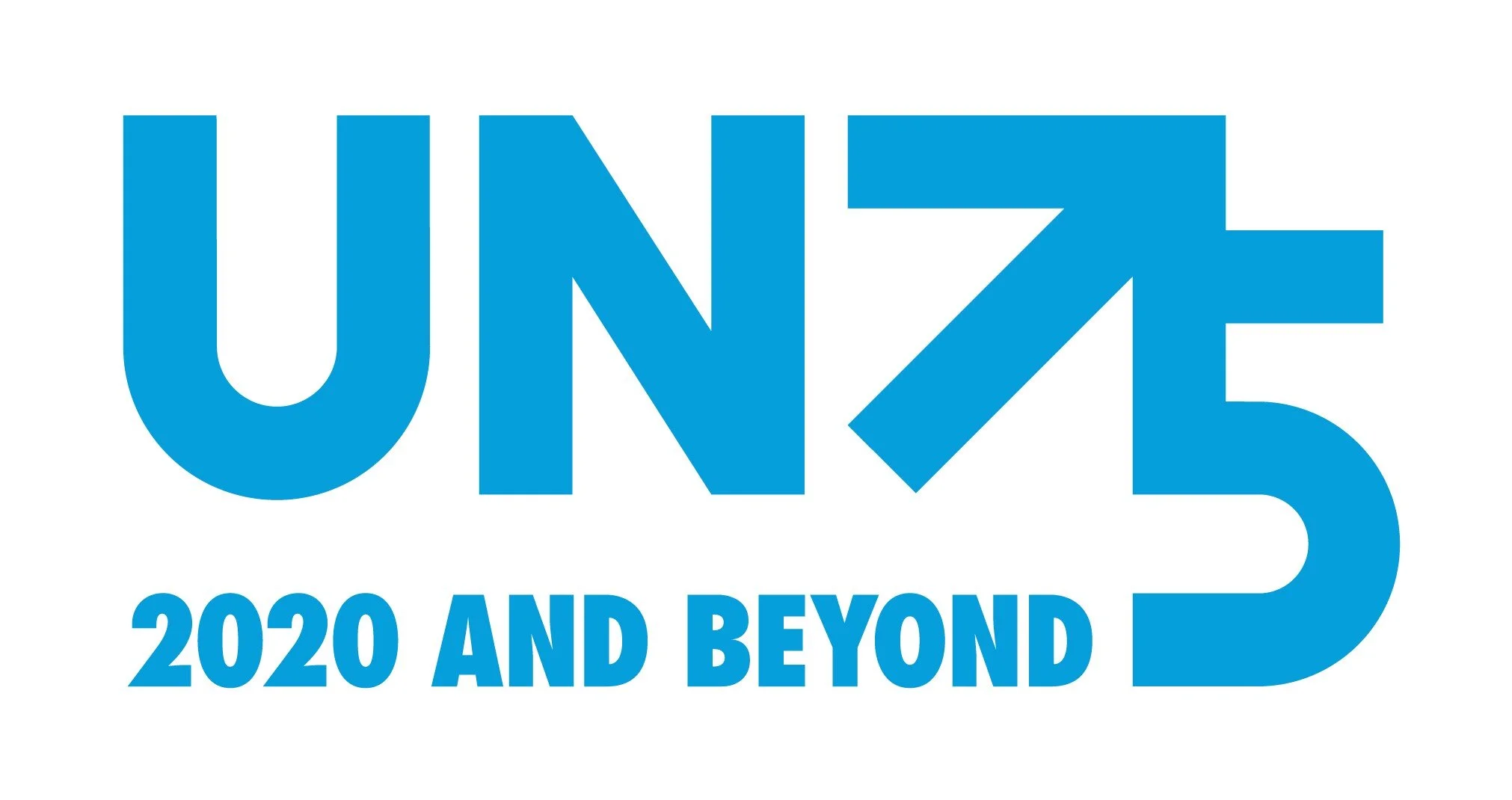ELCA Advocacy provides some timely questions and talking points based upon ELCA Advocacy priorities of hunger, police reform, housing and homelessness, migration, international aid, and inequality.
Read MoreCongress traditionally takes a recess during the month of August, allowing lawmakers time to return to their home states and congressional districts to connect with constituents. That may look a bit different this year.
New to help you connect with lawmakers in 2020 is a Virtual Visits resource with tips on how to utilize digitalcommunications options more widely in use this year. Our August Recess Guide also contains ideas for communicating with your elected officials and candidates in–district this month.
Read MoreELCA Presiding Bishop Elizabeth Eaton’s weekly message talks about the effect COVID-19 will have on the ability to feed our struggling neighbors, and implores us to act now.
You can help by letting your elected leaders know the importance of including funding for critical feeding programs in the $1 trillion COVID response bill in congress. https://ELCA.org/COVIDaction
Read MoreAs church we are called to confess the sin of racism, condemn the ideology of white supremacy, and strive for racial justice and peace. Beyond statements and prayers, we are called to also act and respond to injustices. Take the ELCA Anti-Racism Pledge.
Sign the pledge, “I commit to study, prayer and action to become an anti-racist individual in an anti-racist church,” and share your participation on social media using #ELCA4justice.
Read MoreThe latest June updates from the ELCA Advocacy office in Washington, D.C., the Rev. Amy E. Reumann, directorate: National attention on police violence and racism | COVID-19 Legislative response | Compounded migrant concerns | Protecting voting rights during the pandemic
Read MoreELCA Advocacy shares updates from submissions of the Lutheran Office for World Community and state public policy offices. U.N. | Arizona | California | Colorado | Minnesota | Ohio | Pennsylvania | Texas | Washington | Wisconsin
Solveig Muus, Lutheran Advocacy Ministry Arizona (LAMA) director, writes in part: “LAMA’s policy team continues to reach out to each of our 85 Arizona congregations to learn how we might serve their needs. One church at a time, we are learning what each is passionate about, what community ministries each supports, and where there might be an advocacy call to action.”
Read MoreFrom the Rev. Amy E. Reumann in the ELCA Advocacy office in Washington, D.C. we get the update of Advocacy Connections: May 2020
NEXT COVID-19 RESPONSE BILL | DACA CONCERNS | NORTHERN TRIANGLE FUNDS | DEBT RELIEF FOR COUNTRIES | VIRTUAL EAD
Read MoreFollowing are updates shared from submissions of the Lutheran Office for World Community and state public policy offices: U.N. | Arizona | California | Colorado | Minnesota | Ohio | Pennsylvania | Texas | Washington | Wisconsin.
Arizona’s Solveig Muus, LAMA director, writes in part: “As the newest state public policy office, LAMA opened its doors just a few weeks before the pandemic took hold. LAMA’s focus in the meantime is to gather information and build its network; the policy team is contacting every congregation to listen and to learn how we might serve them.”
Read MorePeter Severson, Director, Lutheran Advocacy Ministry-Colorado, writes: “It seems almost trite to point out the deep and intense division in our modern political landscape in the United States.”
“It feels easier to just take it as a given, rather than to ask how it might be reconciled. It is a very tough environment in which to be a church premised on God’s reconciliation and love.”
Read MoreELCA Advocacy shares submissions of the Lutheran Office for World Community and state public policy offices: U.N. | California | Minnesota | New Mexico | Pennsylvania | Texas | Washington | Wisconsin
Read MoreThe Census Bureau continues to carefully monitor the coronavirus (COVID-19) situation. The key message right now is: It has never been easier to respond to the census on your own—whether online at 2020census.gov, over the phone, or by mail—all without having to meet a census taker.
Promotion of census participation is important, particularly to support challenges like the coronavirus (COVID-19).
Read MoreWith daily developments in the spread and scope of the coronavirus disease 2019 (COVID-19), our anxiety and uncertainty tempt us to curve inward and fixate on self-preservation.
As a church for the sake of the world, committed to God’s call to love and serve our neighbor, we must turn our attention to those who will be most impacted by what may be massive disruptions.
Read MoreELCA Advocacy has many updates, including our first ever update from Solveig Muus and the newly formed Lutheran Advocacy Ministry Arizona (LAMA).
The March update includes: U.N. | Arizona | California | Colorado | Delaware | Kansas | Minnesota | Ohio | Pennsylvania | Southeastern | Texas | Washington | Wisconsin. Advocacy connections include COVID-19 | Landmines | Hmong and Laotian Deportations | FY2021 Budget | Fair housing rule.
Read MoreAs we enter this election year, we remember our call to conversation and prayer around our role as U.S. residents and as people of faith in ensuring our election systems promote dignity and respect for all.
We are called to act by speaking out as advocates and engaging in local efforts to guarantee the right to vote to all citizens. More info at: elca.org/Our-Work/Publicly-Engaged-Church/ELCAVotes
Read MoreAs our nation responds to COVID-19 with public health measures to test and contain the outbreak, we are also confronted by an outbreak of xenophobic attacks on Asian Americans, adults and children, with reports of similar aggressions around the world.
Read MoreOur communities are significantly shaped by census data, and Census 2020 will update these numbers for the first time in 10 years. The ELCA is an official partner of the 2020 Census to encourage the most accurate count possible.
Posters placed in your congregation’s common areas and social ministry locations can raise awareness and encourage all to follow-up when their invitation to complete the census arrives by National Census Day on April 1, 2020. A toolkit with additional tools and bulletin inserts as well as the posters can be downloaded from the “Civic Engagement” tab at ELCA.org/resources/advocacy.
Read MoreThe ELCA is an official partner of the 2020 Census as we work toward a just world where all are fed and further our commitment to greater justice in public policy and the electoral process. An accurate count determines electoral maps and ensures that $675 billion in federal funds justly go where they are needed most.
Posters are available from ELCA.org/resources/advocacy to help ELCA congregations encourage participation, particularly among hard-to-count populations such as people residing in rural areas, young children, LGBTQIA people, people experiencing homelessness, indigenous people, people who do not speak English, and racial and ethnic minorities. National Census Day is April 1, 2020, at which time all homes should have been invited to complete the census.
Read MoreFrom the ELCA Advocacy office in Washington, D.C. – the Rev. Amy E. Reumann, director, comes the February Update of Advocacy Connections: Travel Ban | Girl’s Education | Disaster aid for Puerto Rico | Fair Housing Rule | Census 2020
Read MoreWhen it comes to responding to homelessness in our congregations, often there is a will but not a way. We would help if we only knew how to do it safely, if we could guarantee that our money was not going to support an addiction, if we had more time to understand best practices and so on. Fear causes us to freeze and walk or drive past the neighbor in need on our everyday Jericho roads.
Read MoreRefugees and their supporters, including Bishop Deborah Hutterer, went to the Arizona Capitol on Monday to urge the state Legislature to pass a resolution welcoming those who escape violence and persecution.
Among them was Jolie Nabigondo from the Democratic Republic of the Congo. She explained at a news conference that she was imprisoned in the late 1990s and tortured. Nabigondo later fled to Rwanda, Uganda and Kenya before coming to the United States.
Read More




















